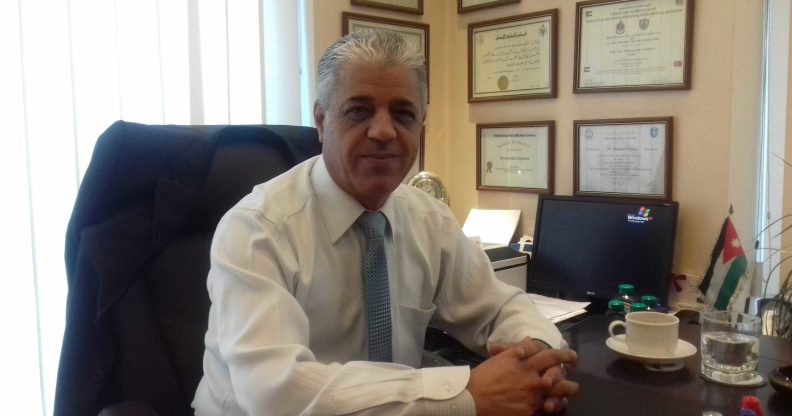Deplorable conversion therapy doctor unashamedly describes how he ‘treats’ gay people for their ‘sexual deviations’

Dr Mohamed Al Dabbas openly practices conversion therapy. (Vezeeta)
A psychiatrist in the Middle Eastern country of Jordan has unashamedly described how he “treats” gay people with traumatising conversion therapy.
Although Jordan decriminalised homosexuality in 1951, it was only in 2013 that honour killings stopped being legal justification for murder.
LGBT+ people face discrimination and violence, and in a 2019 survey just seven per cent of Jordan’s population found homosexuality “acceptable”. In contrast, 21 per cent said honour killings were “acceptable”.
Although it has been three decades since the World Health Organisation declassified homosexuality as a mental illness, conversion therapy is still rife around the world.
Dr Mohamed al-Dabbas, a respected psychiatrist who studied at both UCL and the Royal College of Psychiatrists in London before returning to his home country of Jordan, told BBC News Arabic that he “treats” gay people.
Some homosexuals are convinced they are born this way. This is wrong.
In a short documentary on conversion therapy in Jordan, he said: “Some homosexuals are convinced they are born this way. This is wrong.
“Because of the way they look and act since birth, they have convinced themselves they are gay and they believe they can’t be treated.
“We start sessions with the person to convince him or her that homosexuality is wrong, not acceptable and will impact them and their future.”
Although al-Dabbas does not explicitly advertise conversion therapy online, his public LinkedIn profile states that he treats “sexual deviation and dysfunctions”.
Two survivors of conversion therapy in Jordan described their experiences anonymously in the film.
One young, gay man said it was so “unbearable” for him when the so-called conversion therapy did not work that he attempted suicide at 17 years old. His father told him he would rather his son be dead than be gay.
The debunked practice of conversion therapy can cause long-lasting physical and psychological harm.
The so-called “treatment” is often compared to torture, and has been linked to higher risks of depression, suicide, and drug addiction.

